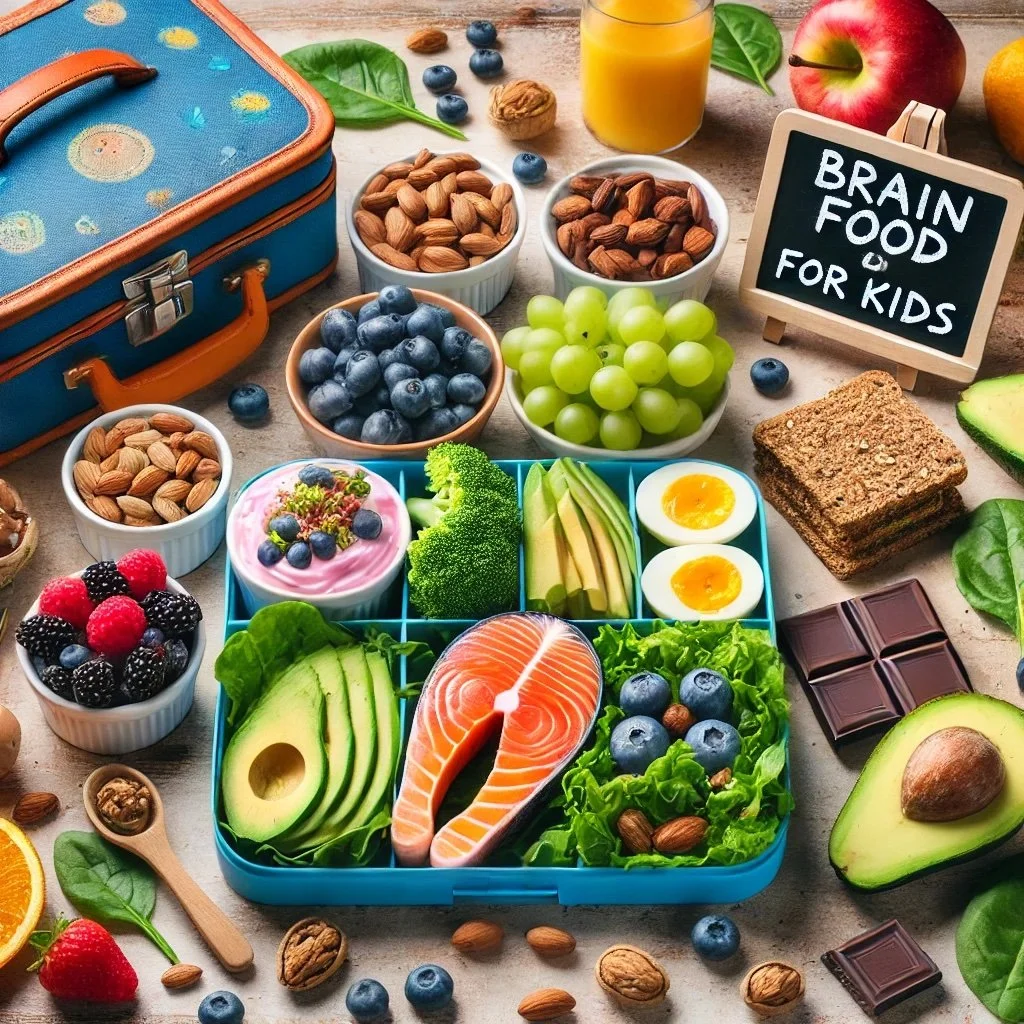Teenagers today are busier than ever. Between early morning practices, late-night homework, weekend tournaments, and the pull of fast food runs with friends, it’s no surprise that food choices can become reactive rather than intentional. As a parent, it can feel frustrating to see your once-nutrition-conscious child now opting for vending machine snacks or skipping breakfast altogether.
Read MoreResearch increasingly links these foods to a variety of chronic health conditions, including metabolic disorders, obesity, gut health issues, and even cognitive and behavioral challenges. Despite their convenience, ultra-processed foods may pose long-term risks to children's well-being.
Read MoreThis article will explore the root causes behind common childhood health issues such as behavioral concerns, constipation, GERD (acid reflux), anger and aggression, anxiety, and lack of focus and attention. These root causes may include gut dysbiosis, nutritional deficiencies, underlying infections, viruses, heavy metal or environmental toxicity, and food sensitivities.
Read MoreOne of the most powerful ways to support your child’s brain development is through proper nutrition. The foods children eat play a crucial role in cognitive function, memory, learning, and focus.
Read MoreProper nutrition is critical for children’s growth, brain development, and overall health. A well-balanced diet provides the necessary vitamins and minerals to support strong bones, a robust immune system, and optimal cognitive function. However, many kids fall short of getting essential nutrients due to picky eating, processed food consumption, or dietary restrictions.
Read MoreTwo hundred years ago, the average American consumed just ½ teaspoon of added sugar per day. Fast forward to today, and the numbers are staggering: the average adult American consumes 19 teaspoons daily, while American children are consuming a shocking 34 teaspoons of sugar every day. These figures far exceed the American Heart Association’s recommendation that children should consume no more than 6 teaspoons of added sugar daily.
Read MoreThere are many natural alternatives to treating ADHD which also improve optimal health status. Looking for specific food intolerance’s and micronutrient deficiencies is especially helpful.
Read MoreImmune-boosting recipes that benefit the entire family, not only in preventing illnesses but also in aiding recovery during times of sickness.
Read MoreWhile the exact causes of autism remain elusive, emerging research suggests a potential connection between mitochondrial dysfunction and the development of autism. Mitochondria, often referred to as the powerhouses of the cell, play a crucial role in energy production and cellular function.
Read MoreAutism spectrum disorder (ASD) is a complex neurodevelopmental condition characterized by a wide range of symptoms and challenges. Among these challenges, aggression and anxiety are common issues that parents and caregivers of children with autism face. Essential amino acids, in particular, have shown promise in improving behaviors in children with autism, especially in terms of aggression and anxiety.
Read MoreAs a pediatric nutritionist, my passion lies in helping children achieve their optimal health and well-being. There has been growing research and interest in the relationship between gluten sensitivity, including celiac disease and non-celiac gluten sensitivity (NCGS), and autism spectrum disorder (ASD).
Read MoreIn recent years, research has shed light on the intricate relationship between the gut microbiome, neurodevelopmental disorders like autism and ADHD, and the use of antibiotics. Frequent antibiotics can have a major impact on the gut microbiome of children with autism and ADHD, and a holistic approach to nutrition and healthcare can make a significant difference.
Read MoreSweet potatoes, with their vibrant orange hue and sweet flavor, are more than just a delicious addition to family meals. They are a nutritional powerhouse, offering a plethora of vitamins and minerals that are particularly beneficial for children on the autism spectrum. In this article, we will explore the fantastic benefits of sweet potatoes for these children, highlighting the specific vitamins they contain and various creative ways to incorporate this superfood into their diets.
Read MoreIron is a vital nutrient that plays a crucial role in transporting oxygen throughout the body, supporting brain development, and maintaining a healthy immune system. In children with autism and ADHD, iron deficiency can exacerbate existing challenges by contributing to behavioral issues and sleep disturbances.
Read MoreAs the back-to-school season approaches, if your child has dietary restrictions, such as gluten-free and casein-free needs, you may be seeking nutritious and delicious lunchbox ideas to keep your little ones fueled throughout the school day. It's important to provide balanced meals that contain protein, fiber, and healthy fats to support their growing bodies and active minds. In addition to focusing on the contents of the lunchbox, we'll also explore eco-friendly lunchbox packing options, specifically stainless steel items from trusted brands like LunchBots, PlanetBox, and Bentgo.
Read MoreWhile multivitamins are commonly used to supplement essential nutrients, they may not be sufficient for children with nutrient deficiencies or those with autism who require extra Methylated B vitamins, Vitamin D and minerals such as magnesium and zinc.
Read MoreWhile conventional medicine offers valuable insights into these conditions, the rapidly evolving field of functional medicine testing has provided us with a deeper understanding of the intricate connections between gut health, nutrient deficiencies, heavy metal toxicity, and food sensitivities in these children.
Read MoreAs a pediatric clinical nutritionist, I often encounter concerned parents seeking guidance on their child's food sensitivities. It's crucial to understand the signs and symptoms associated with food sensitivities, as they can manifest in various ways, including behavioral issues, digestive problems, rashes/eczema, and even attention deficit hyperactivity disorder (ADHD). Moreover, children with conditions like autism and ADHD are more prone to developing food sensitivities.
Read MoreThere is a growing concern regarding the use of pesticides in our food production systems. Pesticides, chemicals designed to kill pests and protect crops, have become a pervasive part of modern agriculture. However, their potential toxicity poses a significant risk, particularly for vulnerable groups such as children.
Read MoreEosinophilic esophagitis (EoE) is a chronic immune-mediated disorder that affects the esophagus, causing inflammation and the buildup of eosinophils, a type of white blood cell. EoE has been increasingly recognized in recent years, particularly among children.
Read More



















